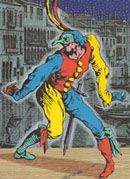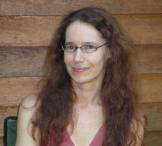


There's so much to say about the work but just as much to say about the man. How is it possible that someone with whom I never officially took a class or had officially as a thesis adviser could have essentially fostered my whole career? Invested time and care not only during, but well after, my official schooling. It wasn't as if I didn't already have abundant riches in the mentor realm. But Bob's generosity supplemented them. I remember that Bob bothered to read one of my earliest published stories--it remains the one I am best known for—he saw exactly what its intention was. He quelled my anxiety by stating flatly, it's not about sex; it's about philosophy. When editors were on the prowl for "young talent," it was Bob who took it upon himself to play midwife, sending me toward top-notch editors in the days when major presses still took chances—with characteristic generosity that was above and beyond the call. Not every great writer would share his own agent with a young writer he considered worthy. And as we who teach know, being considered worthy is an incentive to become worthy. It was and remains difficult to match Bob's energy, no less abundant at eighty than it was thirty years ago. The life of the mind had a social component; Bob's late-night life demonstrated that one did not fulfill one's writerly destiny exclusively in solitude. One shared ideas over fine food and fine wine, and went to great lengths to create occasions for such exchange. Bob was the grand maestro choreographer. Great writers (as well as great critics, great translators) were flown in from distant places to create historic literary occasions, and most importantly, for Bob, to create that moment, well after formal conferences had terminated, of informal, intimate exchange over a glass of wine. What astounding fortune to be privy to the gathering of such luminaries as Barth, Gass, Gaddis, Barthelme, Hawkes, Carter, Robinson, and Coover: all in one room. Unspeakable Practices were initiated, perpetuated, and cherished. The making of narrative that dared to foreground language or dared to thumb its nose at the conventions of the fictive status quo: these gestures were ultimately the unspeakable practices. The stakes were high for a renegade writer. And in fact, the higher the better, as far as he was concerned, because Bob also, as we know, had a keen interest in those writers who made uncompromising artistic choices within oppressive political contexts, and he supported this species of freedom at any cost. And of course, he was just such a writer himself. I'll never forget an amazing performance of The Public Burning he presented at a humble graduate student reading. (The mingling of such stars among us novices was a tremendous gift.) The courage of its contents was self-evident, but the genius of its form, as with all Bob's work, was equally salient. Moreover, Bob's performance values taught me most everything I know about delivering one's fiction orally to an audience. His theatricality was electric, and not in the least gratuitous. The vivacity, disinterest in propriety, and rhythmic ingenuity he modeled was profoundly inspirational, and thoroughly entertaining. But even more instructive was the glee with which he shared condemnatory reviews. From Bob we learned that the censoriousness of the masses was potentially a special badge of honor. But the guy was practical too. I probably would never have learned to use a computer had Bob not insisted that our graduate theses be delivered through the means of that nascent technology, and so nightly from 2:00 – 6:00 A.M., I occupied the Brown mainframe, while night-owl undergraduates played the early version of computer games--in the days when computers took up entire rooms. When it came time to leave the nest, or at least contemplate doing so, it was Bob who had practical advice based on philosophical principles. And the principle was always putting art first. Whatever made the writing thrive was what should be done. And so when I couldn't decide whether to flee to California for my first tenure-track job, Bob said, if you go, sublet, leave your piano in Providence, try it out, don't be rash. Most rational people would be aghast at someone's even considering turning down a tenure-track job, but Bob thought tenure was a dangerous thing for a writer, who should never be institutionally enslaved. And yet his life-long commitment to Brown made evident that being a free agent in spirit did not preclude giving one hundred percent of one's energies to assisting the development of young writers--and continuously shaping the legacy of experimental fiction.
 |